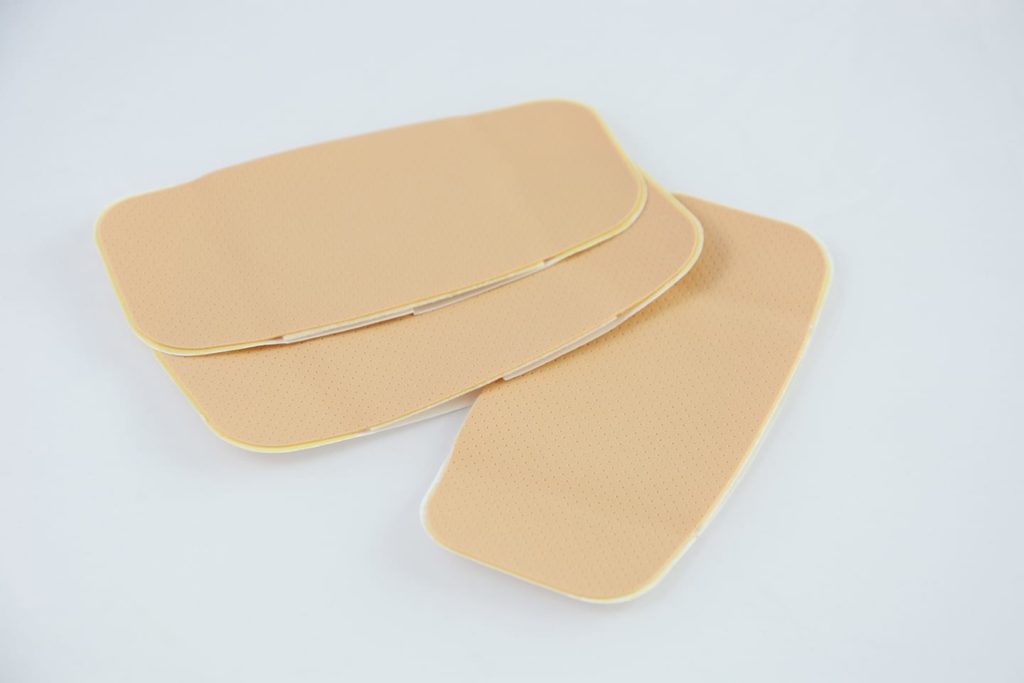Coatings are widely used in pharmaceutical applications. For tablets, they provide not only protection but taste-masking and delayed/timed release properties. Coatings on medical devices serve to prevent corrosion and increase biocompatibility. Films are also important in transdermal systems, which are gaining more interest as a convenient method of drug delivery.
Overcoming poor patient adherence is a primary goal for the pharmaceutical industry today. This is not surprising since, according to an IMS Institute for Healthcare Informatics report published in 2013, increasing medication adherence could save more than $200 billion annually (~8% of the U.S. healthcare expenditures at the time). In fact, in the United States alone, greater than 50% of prescribed medications are either not taken at all or taken incorrectly, leading in many cases to the need for additional care, including emergency room visits and hospital stays. Fatalities are also attributed to poor patient adherence.
One of the key factors contributing to poor patient adherence is the difficulty of taking medications. Consequently, the development of drug delivery systems that are easier to use is a major focus of pharmaceutical companies. Transdermal patches provide an attractive, painless alternative to injectable treatments. They also allow for consistent delivery of the drug over time directly to the bloodstream without concern for undesired metabolism in the liver or degradation in the acidic environment in the stomach. That is not the case with oral medications. Furthermore, they can be easily applied by the patient at home. As a result, the global market for transdermal patch drug delivery reached $7 billion in 2015, an increase of $238 million over 2014, according to Kalorama Information.
At the recent CPhI Worldwide pharmaceutical industry trade show held in October 2016 in Barcelona, Spain, Dow Corning introduced two new silicone blends for skin barrier applications and adhesive and film removal. Dow Corning® SilAc Hybrid Pressure Sensitive Adhesives (PSAs) for transdermal drug delivery applications combine silicone and acrylic polymers and are designed to allow for efficient drug diffusion and solubility while retaining good chemical and physical stability.
The company also introduced two new breathable film-formers with good wash-off resistance for skin barrier applications. Dow Corning MG 2107 and MG 2110 Silicone Blends provide a low-tack, non-occlusive film on the skin, according to the company. Meanwhile, Dow Corning MG 2001 Silicone Blend is a complementary efficient, non-stinging cleaning agent with a silky smooth after-feel for comfortable adhesive and film removal. Dow Corning TI-7012 Solid Resin is another long-lasting, non-occlusive film former that creates a permeable, breathable film with excellent resistance to wash-off and sebum, while Dow Corning TI-4021 Semi-Occlusive Wax acts as a rheology and texture modifier and a structuring agent that provides wash-off resistance and is highly compatible with silicone and organic materials.
It is also worth noting that Dow Corning recently became a wholly owned subsidiary of the Dow Chemical Company, and the two are working in conjunction to highlight the advantages of adding Dow Corning’s silicone-based materials to Dow’s drug delivery and consumer healthcare offerings. According to global strategic marketing director, Gary Lord, Dow Corning helps “formulators support efficacy and patient compliance by assisting with effective delivery using the optimal form. At the same time, we can supply the relevant information for each application that is required by regulators. As an innovator and collaborative partner to the industry, Dow Corning works tirelessly to stay ahead of upcoming requirements.”
